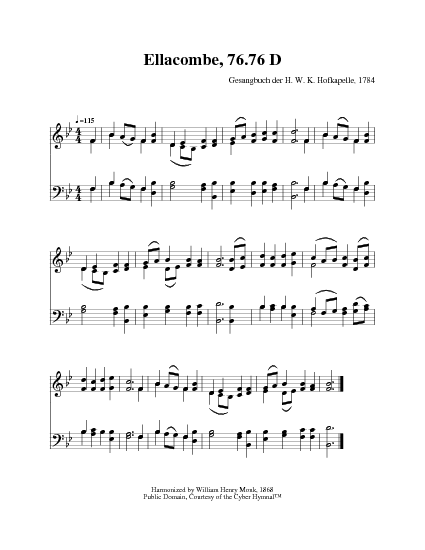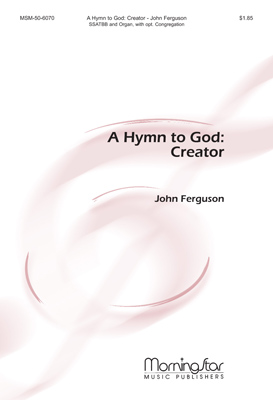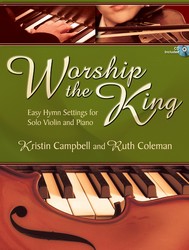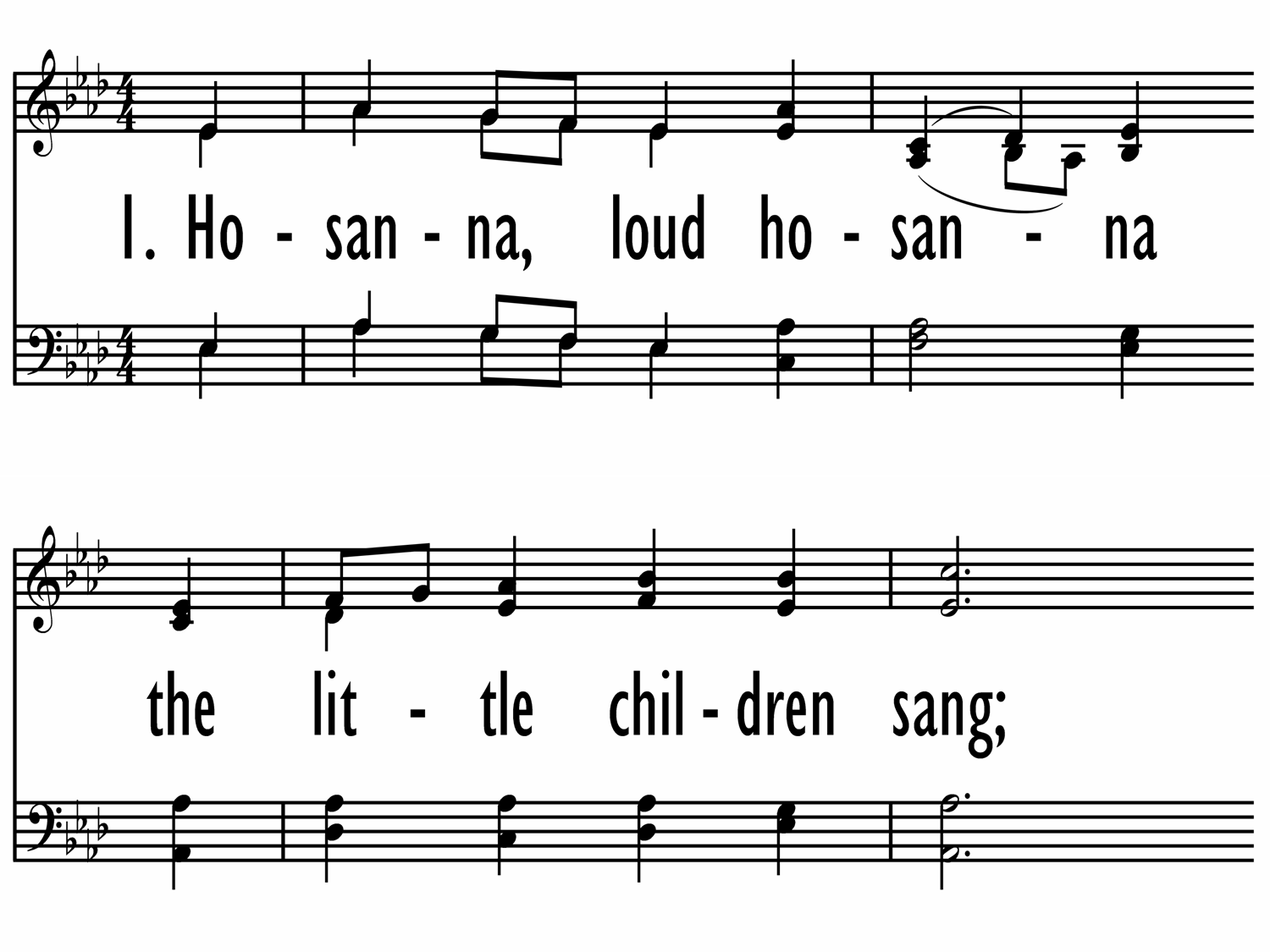- |
User Links
Glory be to God on High

Glory be to God on high, And peace on earth descend
Author: Charles WesleyPublished in 7 hymnals
Printable scores: PDF, MusicXMLAudio files: MIDI
Representative Text
1 Glory be to God on high,
and peace on earth descend;
God comes down, He bows the sky,
and shows Himself our friend.
God th'invisible appears,
God the blest, the great I AM,
sojourns in this vale of tears,
and Jesus is His name.
2 Him the angels all adored,
their Maker and their King:
tidings of their humbled Lord
they now to mortals bring.
Emptied of His majesty,
of His dazzling glories shorn;
Being’s source begins to be,
and God Himself is born!
3 See th'eternal Son of God,
a mortal son of men,
dwelling in an earthly clod
whom heav'n cannot contain!
Stand amazed, ye heav'ns at this!
See the Lord of earth and skies,
humbled to the dust He is,
and in a manger lies.
4 We, earth's children, now rejoice,
the Prince of peace proclaim;
with heav'n’s host lift up our voice,
and shout Emmanuel’s name!
Knees and hearts to Him we bow,
of our flesh and of our bone;
Jesus is our brother now,
and God is all our own!
Source: Our Great Redeemer's Praise #183
Author: Charles Wesley
 Charles Wesley, M.A. was the great hymn-writer of the Wesley family, perhaps, taking quantity and quality into consideration, the great hymn-writer of all ages. Charles Wesley was the youngest son and 18th child of Samuel and Susanna Wesley, and was born at Epworth Rectory, Dec. 18, 1707. In 1716 he went to Westminster School, being provided with a home and board by his elder brother Samuel, then usher at the school, until 1721, when he was elected King's Scholar, and as such received his board and education free. In 1726 Charles Wesley was elected to a Westminster studentship at Christ Church, Oxford, where he took his degree in 1729, and became a college tutor. In the early part of the same year his religious impressions were much deepene… Go to person page >
Charles Wesley, M.A. was the great hymn-writer of the Wesley family, perhaps, taking quantity and quality into consideration, the great hymn-writer of all ages. Charles Wesley was the youngest son and 18th child of Samuel and Susanna Wesley, and was born at Epworth Rectory, Dec. 18, 1707. In 1716 he went to Westminster School, being provided with a home and board by his elder brother Samuel, then usher at the school, until 1721, when he was elected King's Scholar, and as such received his board and education free. In 1726 Charles Wesley was elected to a Westminster studentship at Christ Church, Oxford, where he took his degree in 1729, and became a college tutor. In the early part of the same year his religious impressions were much deepene… Go to person page >Text Information
| First Line: | Glory be to God on high, And peace on earth descend |
| Title: | Glory be to God on High |
| Author: | Charles Wesley |
| Meter: | 7.6.7.6.7.7.7.6 |
| Language: | English |
| Copyright: | Public Domain |
Notes
Access an additional article on the Canterbury Dictionary of Hymnology:
Tune
AMSTERDAM (Foundery Collection)Variation of Hille's SERVICE. For more tune info, see "Hymn Tune Index" (http://hymntune.library.illinois.edu) 1648a-d. Note how attributions to James Nares don't appear until after 1820.
ELLACOMBE
Published in a chapel hymnal for the Duke of Würtemberg (Gesangbuch der Herzogl, 1784), ELLACOMBE (the name of a village in Devonshire, England) was first set to the words "Ave Maria, klarer und lichter Morgenstern." During the first half of the nineteenth century various German hymnals altered the…
ST. DOROTHEA


 My Starred Hymns
My Starred Hymns





